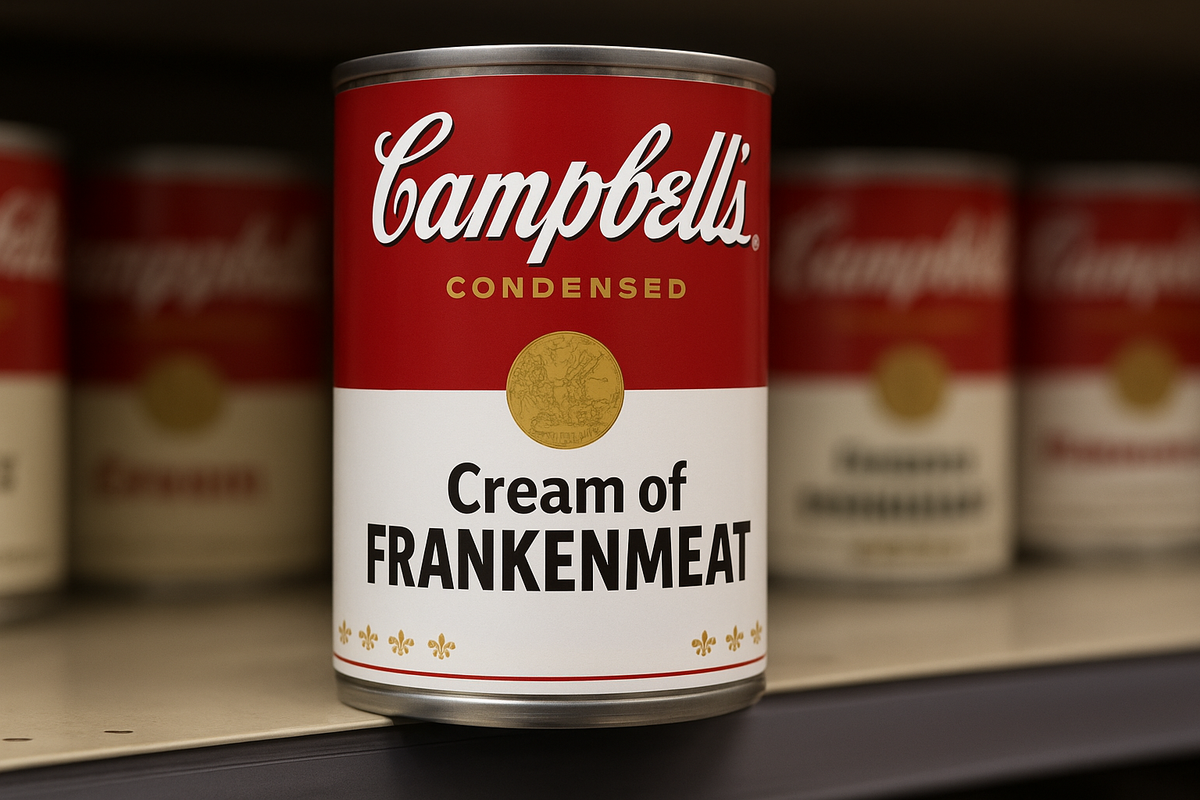Campbell’s Executive on Leave After Allegations He Mocked Customers, Employees
Called products “s--- for f---ing poor people” made with “bioengineered meat,” called Indian employees “idiots…who don’t know a f—-ing thing”

A former Campbell’s employee has filed a lawsuit accusing one of the firm’s top executives of calling its food “s— for poor people” in a secretly recorded conversation.
The suit, filed last week in Michigan’s Wayne County Circuit Court by ex-cybersecurity analyst Robert Garza, alleges that the comments came during what was supposed to be a routine salary discussion with Martin Bally—a Vice President and the company’s Chief Information Security Officer. Garza says the meeting took place in November 2024 and was secretly recorded, under Michigan’s single-party consent law.
According to those recordings, the voice believed to be Bally went on a profanity-laced 75-minute rant. “We have s— for f—ing poor people. Who buys our s—? I don’t buy Campbell’s products barely anymore,” the executive reportedly said. “Bioengineered meat—I don’t wanna eat a piece of chicken that came from a 3-D printer,” he allegedly added.
The suit also claims Bally made racist remarks about Indian employees, calling them “idiots” who “don’t know a f—ing thing” and “couldn't think for their f—-Ing selves.”
Garza says that after he reported the remarks to his supervisor in January 2025, he was fired roughly 20 days later—despite no prior disciplinary record—and claims his termination was retaliatory.
In response, Campbell’s confirmed they placed Bally on temporary leave while the matter is investigated. In a statement, the company said that if the comments were in fact made, “they are unacceptable. They do not reflect our values and the culture of our company.” The company denied any use of “bioengineered” or lab-grown meat in its foods, saying its soups still use “100% real chicken… from long-trusted, USDA approved U.S. suppliers.” The company also emphasized that Bally works in IT and has no role in the production of its food.
The term “3-D meat” most often refers to lab-grown or “cultivated” meat—meat produced by growing animal cells in laboratory conditions rather than raising and slaughtering animals.
Here’s how the process works in general: scientists take a small sample of stem cells or muscle-precursor cells from a living animal. These cells are placed in a nutrient-rich fluid inside large vats called bioreactors. Over time the cells multiply and, given the right conditions, differentiate into muscle fibers, fat, and connective tissue. Sometimes, they are grown on scaffolds that help shape the tissue into a form resembling conventional cuts of meat.
In more advanced versions, 3-D bioprinting techniques are used: a “bio-ink” made of cultured cells is “printed” layer by layer to build up a structure that mimics the texture and feel of real meat. Once matured, this lab-grown product can—in theory—be cooked and eaten much like conventional meat.
Critics sometimes describe such products as “fake meat” or “Frankenmeat,” because the process bypasses traditional animal farming. There are also significant concerns about the potential health risks of lab-grown meat, including its origins from “immortalized” (i.e., cancer) cells, the oncogenic properties of the product, and others (for a review of some of these concerns, see THIS LINK).
Given that, Bally’s alleged reference to a “piece of chicken that came from a 3-D printer” has raised serious questions—both about what he believed the company was using and the company’s public stance on food quality.
The lawsuit names Campbell Soup, Bally, and Garza’s supervisor as defendants. Garza is seeking damages for wrongful termination, emotional distress, and a hostile work environment. As of this writing, Campbell’s has not filed a public court response beyond placing Bally on leave.
Additionally, Florida’s Attorney General has stepped into the fray. AG Uthmeier said on social media that “Florida law bans lab-grown meat,” and that his office’s Consumer Protection division is “launching an investigation and will demand answers from Campbell’s.” The law he referenced—signed in May 2024—makes the manufacture, sale, or distribution of cultivated (cell-cultured) meat illegal in the State. If authorities find Campbell’s violated that ban, the company could face legal consequences under Florida’s statute.
Alabama has a law similar to Florida’s ban on lab-grown meat. In May 2024, the State enacted SB 23, which prohibits the manufacture, sale, or distribution of any food products made from “cultured animal cells.” The bill was signed by Governor Ivey on May 7, 2024, and took effect on October 1. Violations are treated as a Class C misdemeanor, meaning businesses that offer such products can lose their food-service permits, and individuals may face fines or jail time if convicted. The law’s language and enforcement structure closely mirror Florida’s earlier ban on cultivated meat.
Given Florida’s actions, the significant concerns over the alleged presence of “Frankenmeat” in Campbell’s products and the ubiquity of those products—especially Campbell’s cream soups in Alabama kitchens during the holiday season—ALPolitics.com has to wonder when, or even if, Attorney General Steve Marshall will act on this issue.




